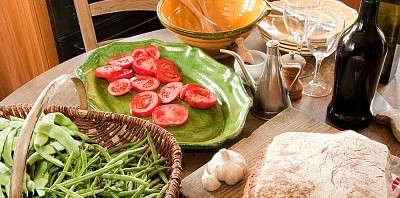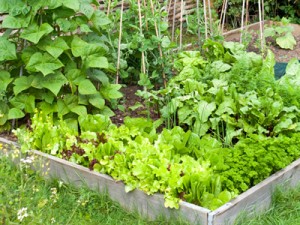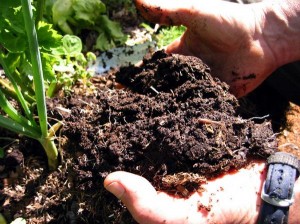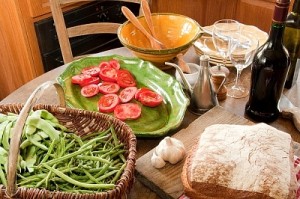
It’s a cool early autumn late afternoon. I walk into the garden, foraging for dinner produce, not quite sure what I’ll cook yet. I’m looking for a few herbs here and there, some salad leaves, a couple of chillies and whatever else catches my eye that might form dinner. It’s an organic garden. Completely natural. Only fresh healthy produce grown here. That’s such a good feeling, knowing that only wholesome, safe food comes from my garden everyday. But there’s another, perhaps equally important side to urban farming. The home economics.
 If you are someone who grows their own food, even a little of it regularly, you’ll know it’s a saving. Every item grown, if even it’s just a pot of herbs, ultimately saves you money. Each produce grown is produce not purchased. That saves money, time and other resources. Now do the maths. If you grow only a little and it saves you some time and money, then growing more must save you more time and money. But … here’s where many people’s thought processes kick in with obstacle thinking: ‘But that means I have to spend more time in the garden’, ‘How much will it cost me to set up a garden and grow more food?’ and ‘It’s a lot of work gardening. Won’t it cost me for water and fertiliser?’
If you are someone who grows their own food, even a little of it regularly, you’ll know it’s a saving. Every item grown, if even it’s just a pot of herbs, ultimately saves you money. Each produce grown is produce not purchased. That saves money, time and other resources. Now do the maths. If you grow only a little and it saves you some time and money, then growing more must save you more time and money. But … here’s where many people’s thought processes kick in with obstacle thinking: ‘But that means I have to spend more time in the garden’, ‘How much will it cost me to set up a garden and grow more food?’ and ‘It’s a lot of work gardening. Won’t it cost me for water and fertiliser?’
Some common sense answers to the rescue! Yes, you’ll spend a little more time in the garden, especially initially to set it up in order to get a yield. But how can more time in the garden ever be a bad thing? You get more fresh air, exercise and it’s so good for the mind and body. And what about the yield? All that fresh produce, straight from soil to plate!
There may also be some initial costs to set up your garden to grow more food, but they can be minor costs with the right knowledge and resources, much of which you may already have handy in your home and garden. As with anything in life, there has to be some give and take, there has to be some initial and ongoing investment, but gardening and growing food is not expensive, certainly not for what you get in return. Once you set up a ‘closed system’, it will cost you very little.
 During summer, when the weather got very hot and dry, I heard many people say they just gave up on their gardens until the weather got cooler. I think that’s very sad, not only because it signifies a lack of knowledge (and perhaps willingness to seek the right knowledge), but also because you are letting your garden go backwards, and allowing an ecosystem to suffer or die. There are many options and techniques, from permaculture, for example, that will help you set up your garden to cope with and provide a good yield in extremes of weather. Gardening is not always easier, but it doesn’t have to be difficult or impossible, and there are skills and knowledge that make it easier than many people believe.
During summer, when the weather got very hot and dry, I heard many people say they just gave up on their gardens until the weather got cooler. I think that’s very sad, not only because it signifies a lack of knowledge (and perhaps willingness to seek the right knowledge), but also because you are letting your garden go backwards, and allowing an ecosystem to suffer or die. There are many options and techniques, from permaculture, for example, that will help you set up your garden to cope with and provide a good yield in extremes of weather. Gardening is not always easier, but it doesn’t have to be difficult or impossible, and there are skills and knowledge that make it easier than many people believe.
Permaculture and urban farming are all about sustainability, which means learning how to sustain your gardens and keep producing food consistently throughout the year, even through extremes of weather and other challenges. These paths also offer solid, time tested and proven methods for helping us ‘get off the grid’ – use more or only renewable energy, store water and other energies, grow and produce most of our own food, which all ultimately saves us money and other resources.
 I would like to encourage and challenge everyone reading this and who follows me to choose to step up their food production. I can support you in increasing your food production without spending much or anything to do so, without increasing household costs, using local, cheap or free resources, with a fresh way of seeing your garden and your world. I can support you in making the transition from where you’re at now to a more solid investment in your garden for a greater yield – to save money, time and improve health and wellbeing.
I would like to encourage and challenge everyone reading this and who follows me to choose to step up their food production. I can support you in increasing your food production without spending much or anything to do so, without increasing household costs, using local, cheap or free resources, with a fresh way of seeing your garden and your world. I can support you in making the transition from where you’re at now to a more solid investment in your garden for a greater yield – to save money, time and improve health and wellbeing.
For the same time, or even less, that it takes you to go shopping at the supermarket, you can put into your garden for a greater, healthier, fresher, organic yield. I will share skills, knowledge, strategies and much more with you to help you achieve this, if this is what you choose, if you accept my challenge. I promise richer, greater return on your initial investment of time and energy.
What can you do? I would love your support for my events and workshops. Your attendance makes my community work and business possible. This is a mutually sustainable agreement. I look forward to us supporting each other, watching your gardens grow and hearing about how you’ve saved money … and ultimately, how much more you’re enjoying your garden and nature. Thank you.
